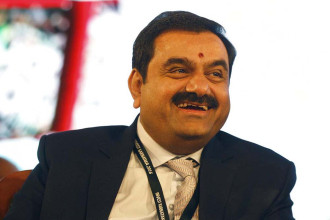
UNITED NATIONS, UNITED STATES: Humanity recorded an unexpected and “unsettling” slowdown in development in 2024 as the global post-pandemic recovery began losing momentum, well before President Donald Trump dramatically cut US international aid, the United Nations warned on Tuesday.
The world had rebounded from the shock of the Covid19 pandemic by 2023, as measured by the UN’s Human Development Index (HDI), which tracks living standards, health, and education. However, that recovery now appears to be faltering, according to the United Nations Development Programme’s (UNDP) annual report, released on Tuesday.
If this slowdown becomes the new normal, achieving previously anticipated levels of human development by 2030 “could slip by decades – making our world less secure, more divided, and more vulnerable to economic and ecological shocks,” warned UNDP head Achim Steiner.
Recent drastic cuts to international aid announced by several countries – most notably the United States, where Trump has slashed programmes and dismantled USAID, the country’s main foreign development agency – will exacerbate the issue, Steiner told AFP in an interview.
“If wealthy countries stop funding development, this will ultimately impact economies, societies, and yes, I think it will also register maybe a year or two down the line in the Human Development Index – lower life expectancy, declining incomes, more conflicts,” Steiner said.
UNDP experts are not yet certain of the underlying causes of the slowdown observed in 2024.
However, one driving factor appears to be stagnation in life expectancy improvements, possibly linked to the long-term effects of Covid or the rise in conflicts around the world.
There is a possible silver lining: artificial intelligence could help revitalise development, the UNDP suggested.
AI “is perhaps the greatest potential pivot in putting development of individual economies, but also of maybe poor people, wealthy people, on a different trajectory. It will change virtually every aspect of our lives,” Steiner said.
However, the report stressed that the impact of AI will depend on how people use the technology.
There are risks. Access to AI in poorer countries is not the same as in wealthier ones, and cultural biases could influence how the tools are developed, the report warned.
But “we can design for reducing that risk,” Steiner said, adding that such concerns should not prevent AI from being used in areas such as medical research.
“The future is in our hands,” the UNDP report stated.
“Technology is about people, not just things. Beneath the razzle-dazzle of invention lurk important choices, by the few or the many, whose consequences will reverberate across generations.”
By RSS/AFP



-1770974468.jpg)


